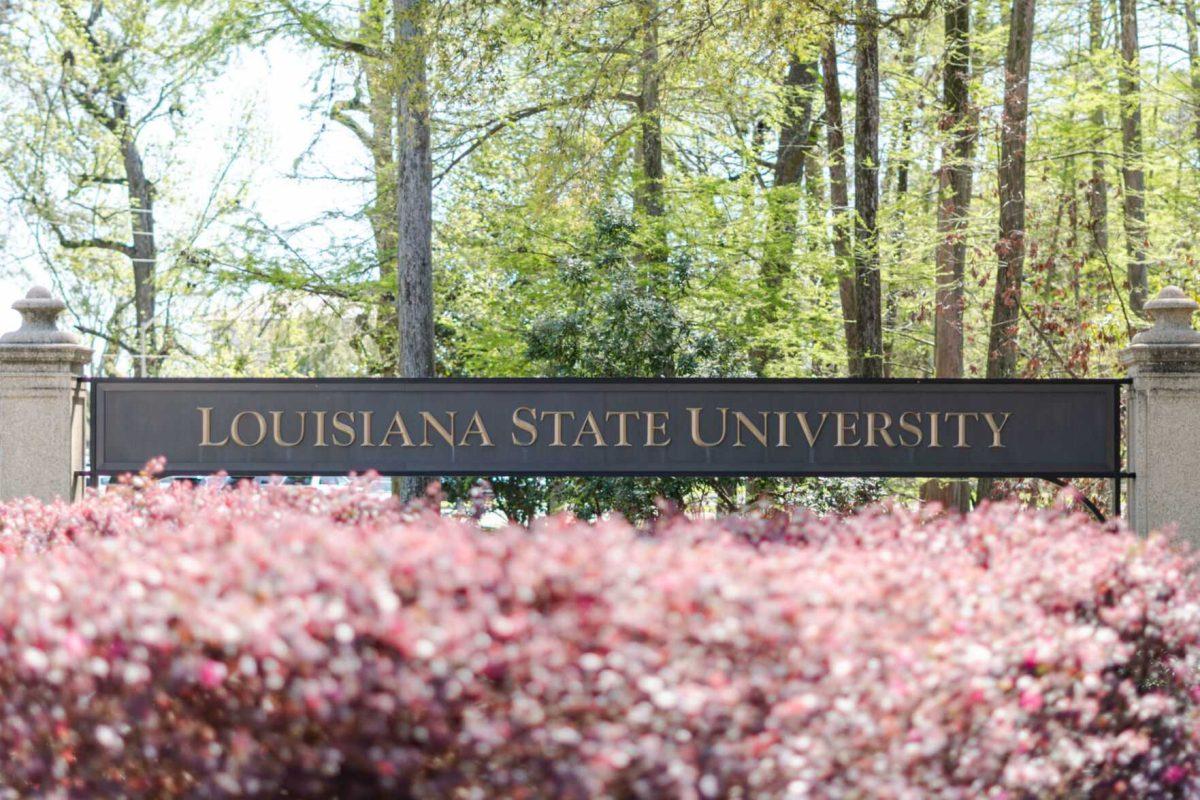Note: Click here to see the Louisiana Illuminator’s original reporting.
Several free speech experts say LSU is on murky legal ground for firing a graduate assistant after his profane voicemail to a state senator went viral online.
The student, Marcus Venable, called Sen. Mike Fesi, R-Houma, after the lawmaker helped override the governor’s veto on a ban for gender-affirming care for trans youth. In a 50-second message, Venable told Fesi he “can’t wait to read your name in the f—–g obituaries” and called him a “big fat-headed motherf—er,” among other profanities.
Many on social media expressed displeasure with Venable’s rhetoric and said his words constituted a threat. Several conservative statehouse members called for Venable to be fired, and U.S. Rep. Clay Higgins tweeted that he would be Venable’s huckle bearer — the person who carries a coffin.
The Illuminator spoke to four lawyers with expertise in free speech to understand whether LSU was within its legal rights to dismiss the sociology student from teaching.
They said offensive language is protected by the Constitution and generally agreed Venable’s words couldn’t be considered a threat under the law. The legality got more complicated for some when considering his status as a graduate assistant and whether he was a public employee.
‘Absolutely protected’
Venable’s firing came less than 24 hours after conservative commentator Greg Price shared the voice message on Twitter. Price’s post, which incorrectly identified Venable as a professor, sparked instant outrage.
LSU released a statement explaining the choice to dismiss the sociology student from teaching.
“Like everyone, graduate students with teaching assignments have the right to express their opinions, but this profanity-filled, threatening call crossed the line,” LSU spokesperson Abbi Rocha Laymoun said. “This does not exhibit the character we expect of someone given the privilege of teaching as part of their graduate assistantship. The student will be allowed to continue their studies but will not be extended the opportunity to teach in the future.”
Daniel Canon, a civil rights lawyer and assistant professor at the University of Louisville Brandeis School of Law, said “the circumstances under which the First Amendment would not protect Mr. Venable for making a phone call to an elected official are very few, and this isn’t one of them.”
“Sure, if he had threatened the Senator with harm, or even if he had called in his capacity as a public employee, then you’d be getting closer to a situation in which the Free Speech Clause would not protect him (though even then it could be a close question),” Cannon said in an email. “But just cursing at him — even calling him names — for a legislative decision that the Senator made in his capacity as a public official is absolutely protected.”
Canon said there was “obviously not an imminent threat to the Senator.” Clay Calvert, a First Amendment scholar at the University of Florida, agreed.
“He wasn’t using fighting words, he was simply outraged,” Calvert said. “… So he’s expressing his views in an offensive manner. But the fact that they’re offensive, you know, doesn’t mean that they fall outside the scope of the First Amendment.”
Employee status
Many of the legal questions in this case hinge on Venable’s status as a graduate assistant and whether he was considered a public employee, said Joseph Tomain, a senior lecturer at Indiana University’s Maurer School of Law.
The National Labor Relations Board has gone back and forth on whether teaching assistants are employees.
“The issue has been of recent interest to universities who oppose graduate students from unionizing because if they’re not employees, then they can’t unionize,” Tomain said.
LSU graduate assistants have a union, United Campus Workers of Louisiana.
If Venable wasn’t considered an employee, then his speech is protected, and he likely could not legally be terminated, Tomain said. But “if (teaching assistant’s) are considered employees, then there is a line of Supreme Court cases that addresses when the government employer can take an adverse action against the government employee based on their speech,” he added.
Assuming Venable was an employee, a court would consider several factors if it heard this case, free speech lawyers told the Illuminator.
First, was Venable speaking on a private or a public matter? He was calling Fesi about a vote he cast, so it’s a matter of public concern, the lawyers said.
Second, was he speaking from his position as a public employee or as a private citizen? He was speaking as a private citizen, lawyers agreed.
Finally, the court would “have to balance his interest in speaking out against the university’s ability to effectively and efficiently carry out its duties,” Calvert said.
“When the government employee speaks as a citizen on a matter of public concern, the government employer has limited ability to punish the employee based on their speech,” Tomain said. The university can only do that if it would be “necessary to stop him from teaching so that LSU could operate efficiently and effectively.”
A federal appeals court laid this out in a 2005 ruling. “So long as employees are speaking as citizens about matters of public concern, they must face only those speech restrictions that are necessary for their employers to operate efficiently and effectively,” the court ruled.
Tomain said he thinks “LSU would face an uphill battle” to prove Venable’s firing was necessary to keep the university running smoothly.
Eugene Volokh, who teaches First Amendment law at UCLA, said the situation is complicated because “the law is not completely clear about government employees’ free speech rights when they involve vulgarity, personal insults and maybe borderline threats.”
On one hand, “it is quite clear that the First Amendment protects people’s rights to complain to government officials and complain about government officials,” Volokh said, “and that includes, generally speaking … the rights of government employees to do that, especially off the job, without being fired for it.”
Universities have prevailed
But it’s not as clear to what extent government employers can ask its workers to remain professional off the job, he said.
Volokh pointed to a 2015 federal court ruling in favor of an employee’s free speech rights over a university’s claim of disruption. Steven Salaita had had a job offer rescinded by the University of Illinois Urbana-Champaign because of tweets he made about Israel that sparked outrage from some. A judge ruled the university was wrong.
But there are older rulings from the 5th Circuit Court of Appeals, which includes Louisiana, that sided with universities over employees, Volokh said.
In a 1976 case, the court sided with a university that fired an assistant professor for using profanity at a public meeting, saying his disruption of the meeting spoke poorly to his qualifications.
In a 1972 case, the court sided with a university for withdrawing a job offer as a teaching assistant from a student who used profanity while criticizing the administration to a crowd. Again, the court decided this reflected a lack of qualifications.
Volokh said he’s inclined to believe LSU is “on solid ground” if it fired Venable for his profane language and not his views.
A national free speech group, the Foundation for Individual Rights and Expression, called Friday in an open letter for LSU to reverse its dismissal of Venable, saying the university can’t punish him for political speech.
So far, the grad student’s only public comment on the matter has been a quote he attributed to his grandfather, Joseph Venable: “The duty of the strong is to protect the weak.”
Free speech experts place LSU on shaky legal ground for firing grad assistant over voicemail
July 26, 2023
The sun shines on Saturday, Jan. 14, 2023, on Memorial Tower in Baton Rouge, La.
More to Discover









